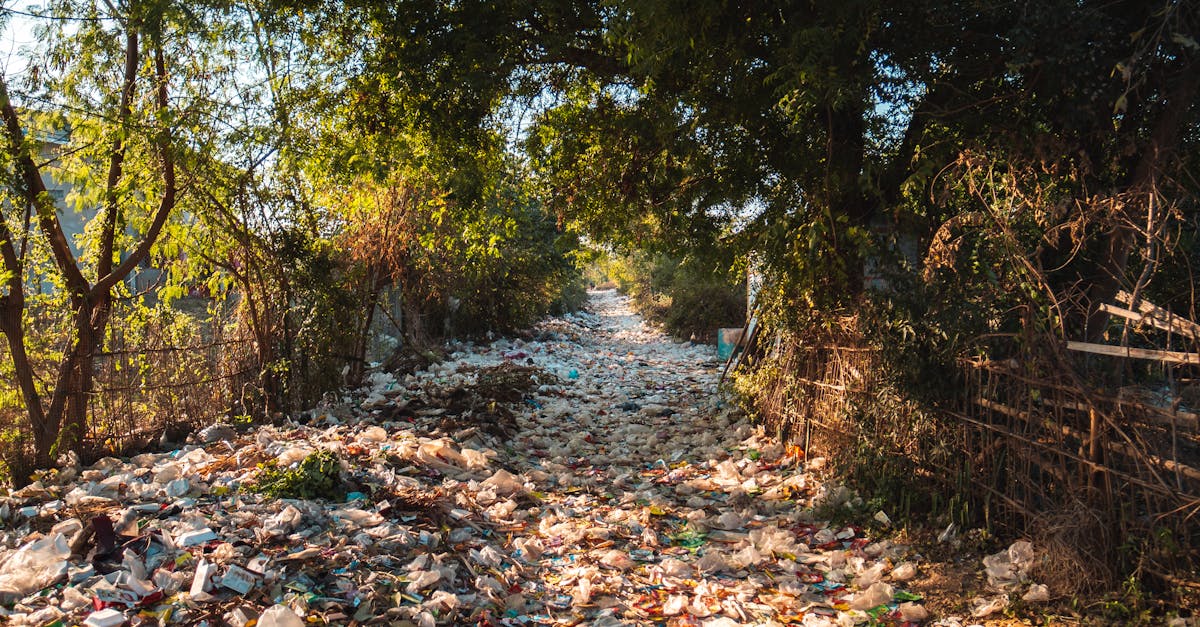A Global Crisis is Unfolding

The world is grappling with an environmental catastrophe of monumental proportions – the plastic pollution crisis. This pervasive issue transcends borders, impacting ecosystems, biodiversity, and human health on an unprecedented scale. As we navigate this daunting challenge, it is imperative to raise awareness, foster collective action, and implement sustainable solutions to mitigate the detrimental effects of plastic waste.
A Ubiquitous Presence
Plastic, a synthetic marvel of modern civilization, has infiltrated every nook and cranny of our planet. From the remote Arctic regions to the depths of the oceans, this indestructible material has left an indelible mark. The staggering statistic of 1.8 trillion pieces of plastic debris floating in the world’s waters is a sobering reminder of the magnitude of this crisis.
Habitat Disruption
The accumulation of plastic waste in aquatic environments has far-reaching consequences for the delicate ecosystems that sustain life on Earth. As debris accumulates, it alters the physical structure of habitats, disrupting the intricate balance that supports marine and freshwater species. Light levels in underlying waters are reduced, oxygen levels are depleted, and the ability of these environments to nurture aquatic life is severely compromised.
A Toxic Legacy
Plastic pollution is not merely an aesthetic issue; it poses grave threats to the well-being of all living organisms. Persistent, bioaccumulative, and toxic (PBT) substances, such as PCBs and pesticides, readily adhere to plastic particles. These contaminants can then enter the food chain, accumulating in the tissues of marine life and ultimately reaching humans through seafood consumption. The ramifications of this toxic legacy are far-reaching, with potential links to various health issues, including endocrine disruption, reproductive complications, and even cancer.
Entanglement and Ingestion
The physical hazards posed by plastic debris are equally alarming. Countless marine species, including sea turtles, seabirds, and marine mammals, have fallen victim to entanglement or ingestion of plastic materials. These incidents can lead to severe injuries, impaired mobility, and even death. The ingestion of plastic particles can also cause internal blockages, impair feeding capacity, and compromise reproductive success.
Microplastics: A Hidden Menace
As if the visible plastic pollution were not concerning enough, the invisible threat of microplastics has emerged as a formidable challenge. These tiny particles, formed by the breakdown of larger plastic items, have permeated every corner of the planet, from the highest mountain peaks to the deepest ocean trenches. Microplastics have been found in the air we breathe, the water we drink, and even the food we consume, raising grave concerns about their potential impact on human health.
Economic Repercussions
The detrimental effects of plastic pollution extend beyond environmental and health concerns, with significant economic implications. Coastal communities worldwide bear the financial burden of cleaning up plastic waste, diverting valuable resources from other essential services. Additionally, the presence of plastic debris can disrupt navigation, impede commercial and recreational fishing, and diminish the appeal of tourist destinations, further exacerbating economic losses.
A Multifaceted Approach
Addressing the plastic pollution crisis requires a comprehensive and multifaceted approach that encompasses various strategies. Reducing the production and consumption of single-use plastics is a crucial first step, as is the implementation of effective waste management systems and the promotion of recycling and circular economy principles.
Innovative Solutions
While traditional cleanup efforts have their merits, innovative solutions are emerging to tackle the plastic pollution problem more effectively. Technologies such as ocean cleanup devices, river trash traps, and advanced recycling methods hold promise in mitigating the impact of plastic waste. However, these solutions must be carefully evaluated to ensure they do not inadvertently harm marine life or contribute to further environmental degradation.
International Collaboration
Plastic pollution is a global issue that transcends national boundaries, necessitating international collaboration and coordinated efforts. Initiatives such as the United Nations Environment Programme’s (UNEP) Global Plastics Treaty aim to establish a legally binding framework to address the plastic crisis on a global scale. By bringing together governments, industry stakeholders, and civil society organizations, these efforts strive to foster a collective commitment to sustainable practices and responsible waste management.
Individual Responsibility
While large-scale initiatives and policy changes are essential, individual responsibility plays a crucial role in combating plastic pollution. Adopting eco-friendly habits, such as reducing single-use plastic consumption, proper waste disposal, and participating in community cleanup efforts, can collectively contribute to a cleaner and healthier environment.
Environmental Justice
The plastic pollution crisis is also inextricably linked to issues of environmental justice. Marginalized communities and developing nations often bear a disproportionate burden of the adverse effects of plastic waste, exacerbating existing socioeconomic disparities. Addressing this crisis requires a holistic approach that considers the needs and vulnerabilities of these communities, ensuring equitable access to clean environments and sustainable waste management solutions.
A Call to Action
The plastic pollution crisis is a clarion call for collective action. It demands a paradigm shift in our relationship with plastic and a renewed commitment to environmental stewardship. By raising awareness, fostering international cooperation, and embracing sustainable practices, we can mitigate the catastrophic consequences of plastic pollution and pave the way for a healthier, more resilient planet.
As we navigate this complex challenge, it is imperative to recognize that the solution lies not only in technological advancements but also in a fundamental transformation of our attitudes and behaviors towards plastic consumption and waste management. Only through a concerted effort, involving governments, industries, communities, and individuals, can we turn the tide against this global crisis and ensure a future where our oceans, ecosystems, and human health are safeguarded from the perils of plastic pollution.


Leave a Reply